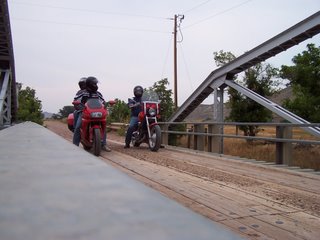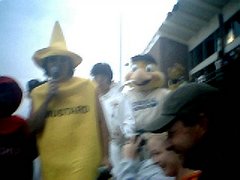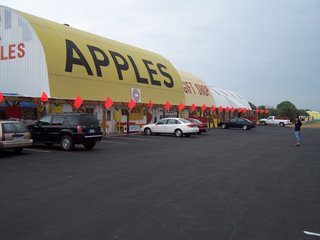





I promised more details about my family reunion in Story, Wyoming, so here goes. The trip out and back was a big deal, my first big trip on a motorcycle, which I haven't yet
 climbed back on. Our trip took me out to Whitewood, SD, where other family members were gathering, and while they headed straight for Story, I headed north through Aladdin, Alva, and Hulett to Devil's
climbed back on. Our trip took me out to Whitewood, SD, where other family members were gathering, and while they headed straight for Story, I headed north through Aladdin, Alva, and Hulett to Devil's Tower, a beautiful drive that ended with cruising up to the gigantic rock formation that I first visited years ago with a couple of juvenile delinquent hitchhikers. There I met my brother and his wife, and we ate at a place that offered such a deal (Come on in and eat before we both starve!) and cruised from there to Gillette, where we turned north and zipped along through desolate country at ramming speed, passed through construction projects and over gravel to finally appear in Story, a beautiful town on the edge of the mountains.
Tower, a beautiful drive that ended with cruising up to the gigantic rock formation that I first visited years ago with a couple of juvenile delinquent hitchhikers. There I met my brother and his wife, and we ate at a place that offered such a deal (Come on in and eat before we both starve!) and cruised from there to Gillette, where we turned north and zipped along through desolate country at ramming speed, passed through construction projects and over gravel to finally appear in Story, a beautiful town on the edge of the mountains.There the Moodys and the Nelsons told stories, played crazy golf, horseshoes and golf, fished in the streams, and enjoyed each others' company until Sunday afternoon when we all headed home again, some sticking around to celebrate my aunt Peggy's 80th birthday.
The golfing turned out to be more enjoyable than many people thought, with players making their own primitive clubs, then drawing for one of the many to use in the game.
Story's a beautiful place, and it was good to see my crazy redneck cousins and my siblings (all but three), but I was very glad to get home again, just in time for school to start.



















